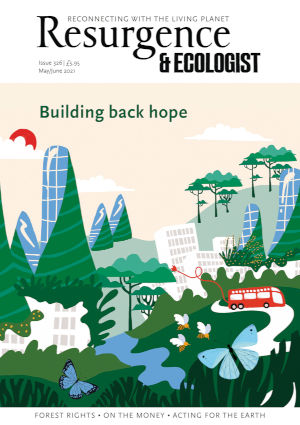A casual observer might be forgiven for thinking I did not enjoy this book. After all, I frequently frowned, looked pained, or had to put it down for ‘a rest’, maybe with a deep sigh. A casual observer might assume those were ‘bad things’, but it was quite the contrary. This book is like nothing I have read before. It inhabited me, stripped me of my skin, and made me feel such deep anguish as well as joy that sometimes I really did need to lay it aside, just to breathe, decompress and wipe aside a tear before going back in.
The author, Josie George, takes us on two parallel and interweaving journeys: her childhood, and a year in her life. We find out about the long history of her chronic illness. The hospital visits, the blood tests, the trauma of being different at school, and how her vulnerability led to her slipping into a toxic relationship. It hurts to read it. Yet this is juxtaposed with George’s life now. If you were hoping for quick fixes and the miraculous recovery often immortalised in text, then you would be disappointed.
George’s life is still full of pain and challenges, she is not ‘cured’ and she must endure judgement and misunderstanding. Yet through it, and perhaps because of it, she has gained a quiet but powerful transcendental strength. Her maternal love for her son shines through, as does his personality through her words. A new relationship surprises and delights her. It’s uplifting to read of the mental gymnastics the human brain can perform to find contentment and happiness, even while experiencing the fatigue and pain of an unpredictable, shifting illness with no end or resolution.
Even a simple pebble from a beach, sent by a friend, can bring unexpected joy and connection for George, and hence for the reader too: “The pebble is a gift to sing over, as a medicine woman would. Sometimes my fingers find it icy; other times it is inexplicably pulsing with warmth. I wonder if it is still joined to the tide that tumbled it somehow, reflecting that faraway edge.”
George’s world is by necessity physically small, limited to small excursions in the close proximity of her home, in an industrial-feeling urban area of the West Midlands. It was written before lockdown, yet her ‘stay local’ lifestyle will resonate with many more of us than ever before. We’ve now had a taste of limits and physical boundaries ourselves.
Yet George’s life remains emotionally and mentally limitless, inviting in friendship and love, but only from those who can truly understand and accept her. A key thread of her hope and resilience is Nature. It punctuates the year and provides close-up wonder. “The best day of the year is the day I hear the first blackbird of the year sing its low, sweet song. It takes me and carries me and, for a moment, I know bliss. The unexpected, sudden sunshine must have filled his small, dark body up to the beak until he couldn’t help but pour it out of him.” Her pledge to know this one place so well is beautiful and something that we should all strive for.
This book is also gently provocative. It challenges our deeply held notions of worth. I do, therefore I have value, or, even worse, I earn money, therefore I matter. When life is smaller and less thrusting, less busy and less consuming, it does not cease to have worth. I think many of us can fall into the trap of life as a performance. Josie George reminds us just to be.







